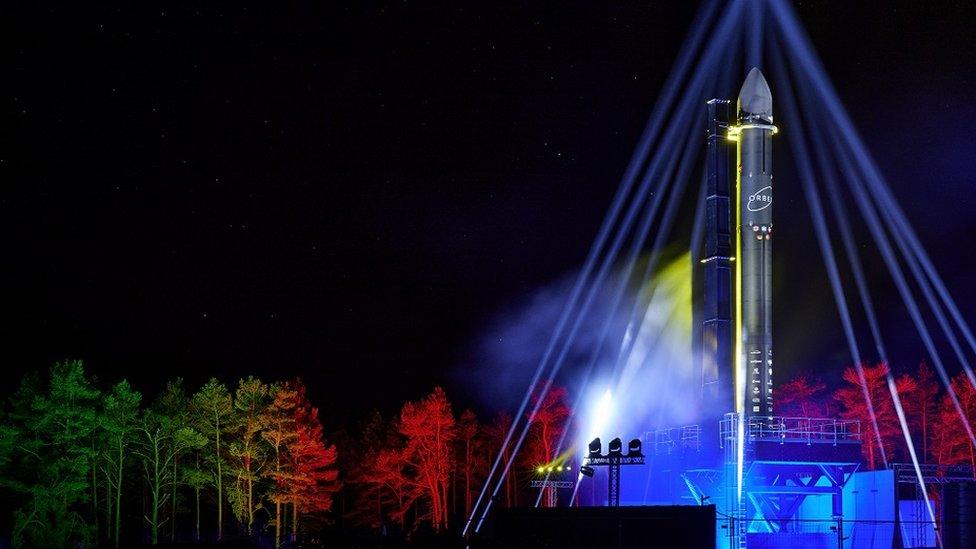Scotland's spaceport plans secure funding boost
- Published
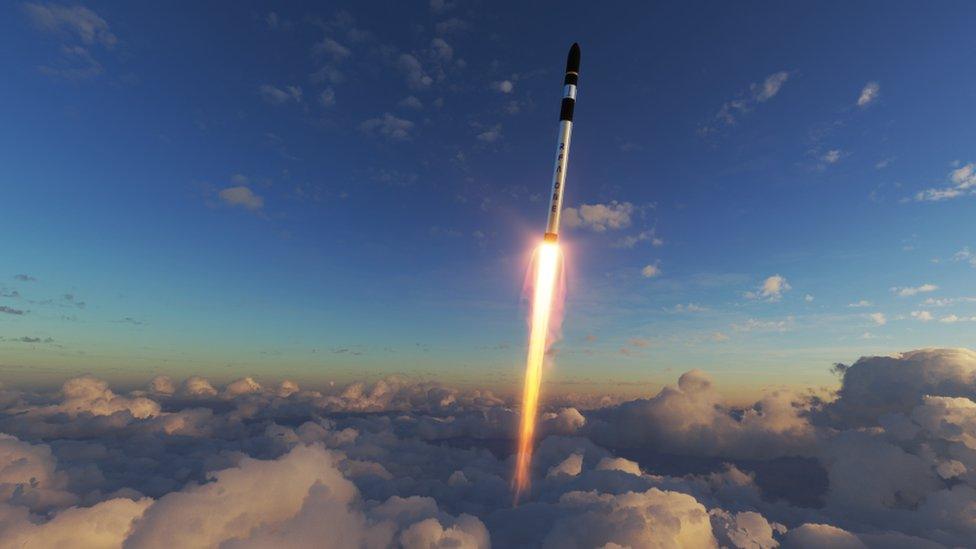
An artist's impression of SaxaVord rocket launch
The UK Space Agency has announced funding of more than £6.7m to further Scotland's spaceports ambitions.
Scottish-based HyImpulse, a launch company working with SaxaVord Spaceport in Shetland, will receive £3.4m.
And Orbex, which is working with Sutherland Spaceport on the A' Mhòine peninsula, will get more than £3.3m.
Both spaceports plan vertical launches of small rockets carrying commercial satellites.
There are plans for five spaceports in Scotland, all at different stages of readiness.
Out in front currently are SaxaVord, based on Unst - the UK's most northerly inhabited island and home to fewer than 700 people.
Working with rocket firm HyImpulse they intend to begin sub-orbital launches next year, and are currently waiting on approval from the Civil Aviation Authority to launch rockets out of the earth's atmosphere and into orbit.
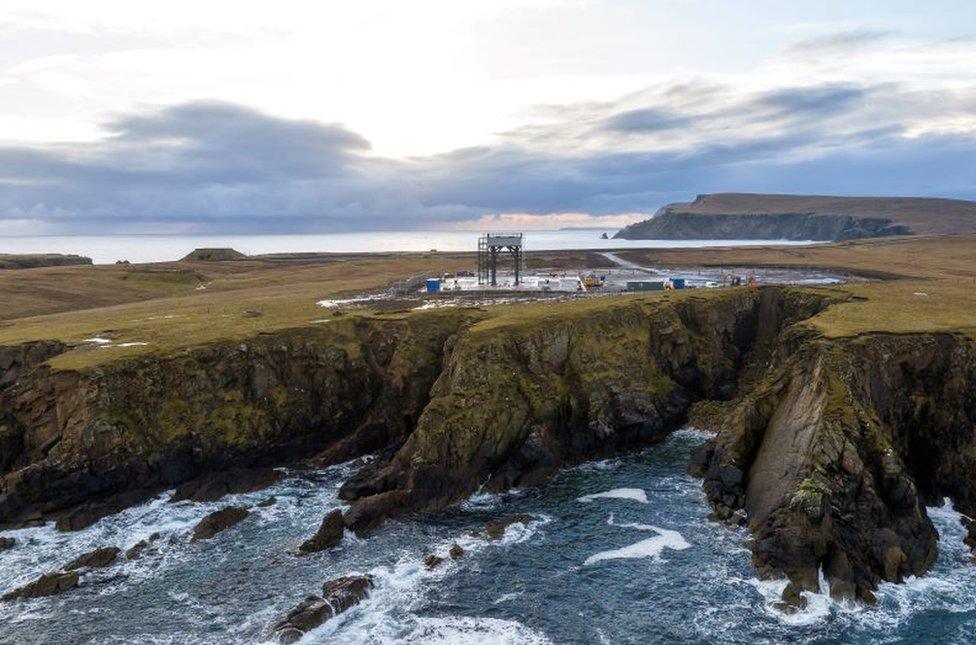
The first rocket launches from SaxaVord Spaceport are expected next year
Sutherland spaceport on the north cost of Scotland is behind SaxaVord in terms of construction but it aims to be the first carbon-neutral spaceport in the world, both in construction and operation.
Community consultation on the site is still under way but they are working with Forres-based rocket firm Orbex to launch small satellites into space.
The UK Space Agency is awarding HyImpulse funding to undertake their hybrid propulsion test programme before launching from Shetland, while Orbex will be given cash to undertake activities to ensure it is environmentally sustainable, including an on-site facility where they can manufacture a clean propane produced from plant and vegetable waste.
HyImpulse anticipates their UK operations will support up to 200 direct jobs in Scotland and a further 1,500 across the wider UK supply chain including in Shetland and at the spaceport.
Highlands and Islands Enterprise anticipate the Sutherland spaceport will support 613 full-time equivalent (FTE) posts throughout the wider Highlands and Islands, including an estimated 44 FTE posts at the site itself.
Matt Archer, director of launch at the UK Space Agency, said the investments demonstrated a commitment to make the UK into Europe's leading destination for launch.
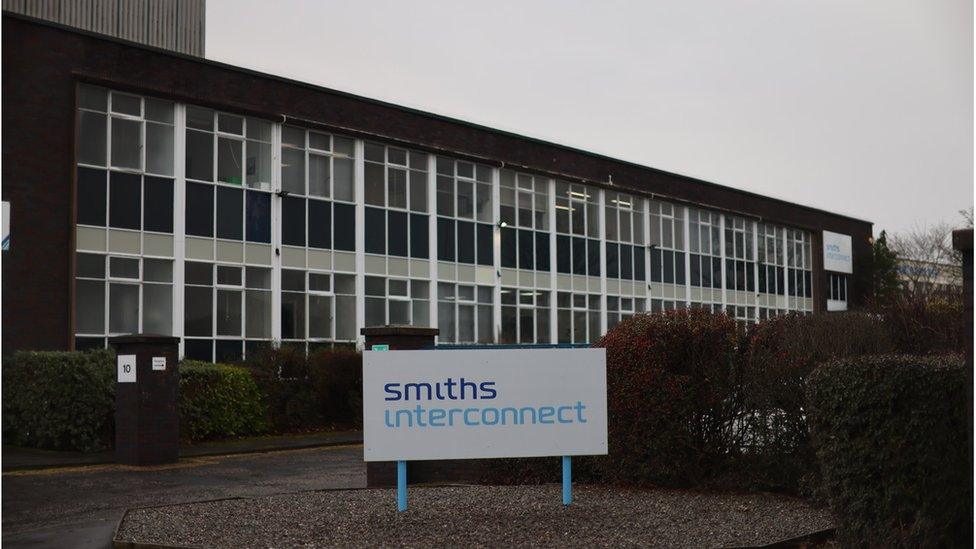
Smiths Interconnect is based on an industrial site in the Lochee area of Dundee
Meanwhile Smiths Interconnect, a space qualification lab based in Dundee, has received £2m as part of the Space Clusters Infrastructure Fund.
The lab builds and tests components for satellites and simulates the extreme conditions of space to assure they can withstand launch and orbit.
Grant Robertson, the company's engineering manager, said the funding would allow them to meet growing demand.
"Every space sector is growing - whether its communication, earth observation or weather monitoring - and the only way to get total coverage around the globe is by satellite," he said.
Smiths Interconnect is home to a deep space testing facility - although you would not know from looking at the outside, in the middle of a Dundee industrial estate.
Components built here need to withstand the impact of a space launch and many years in orbit.
To do that, a giant mechanical hammer is used to replicated the force of launch.
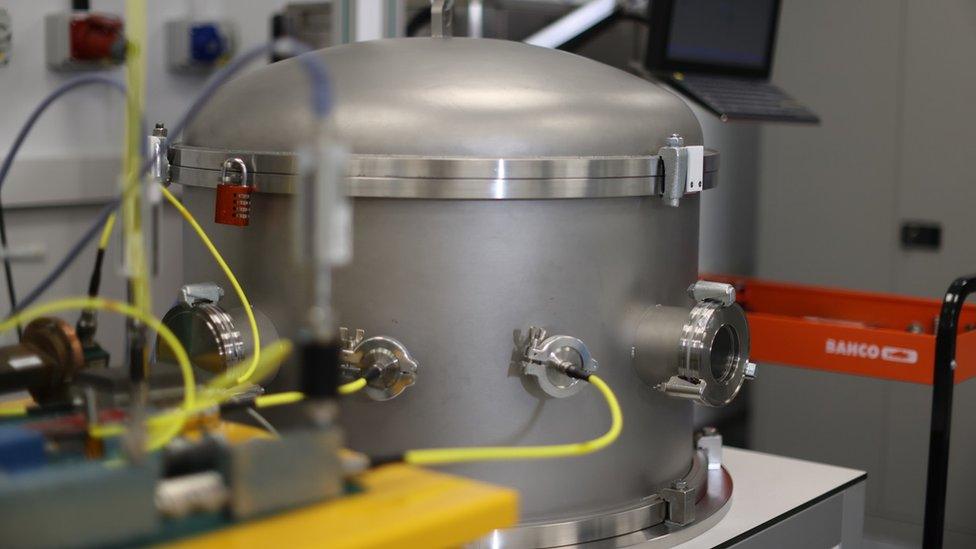
A thermal vacuum which looks like a giant soup pot is used to replicate the conditions of deep space
A thermal vacuum (which looks like a giant soup pot) is used to replicate the conditions of deep space - be that extreme cold, heat or radiation, depending on where the part is heading.
It is one of the few places in the UK capable of carrying out tests like this.
Parts made here have gone to Mars and on expeditions to Jupiter.
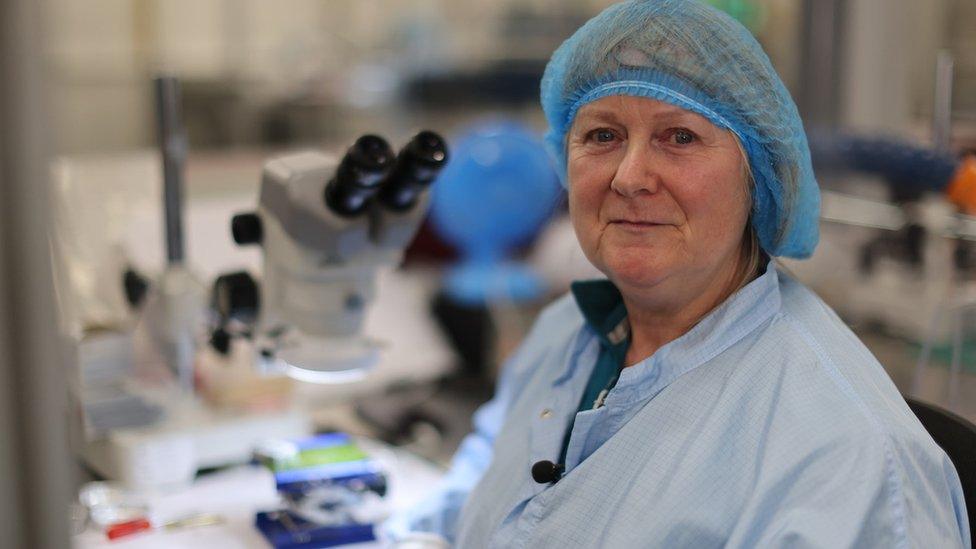
Angie Gordon has worked on the production line for almost 25 years
Angie Gordon has worked on the production line here for almost 25 years.
"There's around 25 of us on the production line between testing and assembly," she said.
"We work on different types of units ranging from the really small to really big units.
"When you tell people what you do - building components for rockets going into space, they do say 'wow'.
"I worked in the mills before, so this is completely different.
"It is funny sometimes when you see the films of the rockets going into space but because we have worked here for so long you don't really think about it, it's just your job, you just get on with it."
Its estimated that 8,500 people in Scotland work in the space sector.
The industry hopes that the increasing demand for satellites will lead to more high-quality jobs in the sector.
Related topics
- Published27 October 2023

- Published1 August 2023
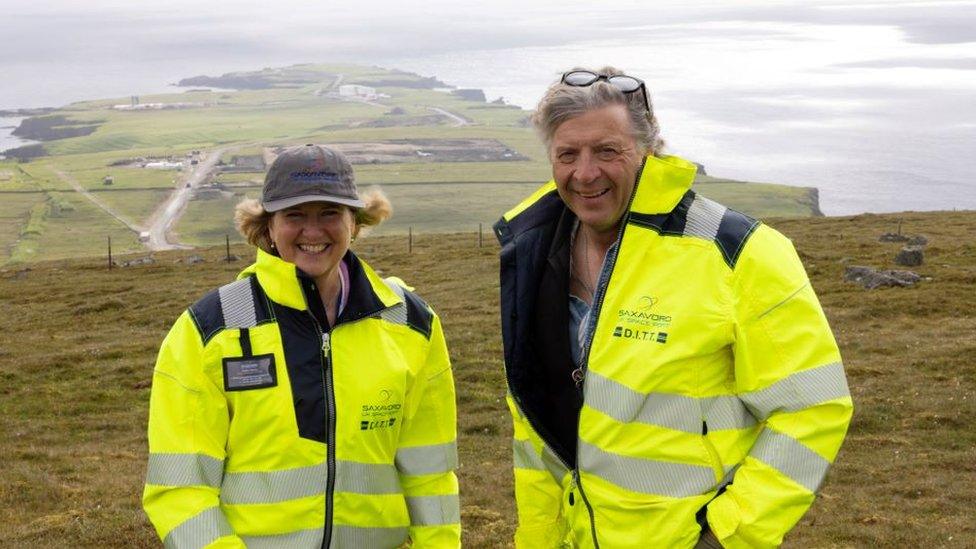
- Published15 November 2023
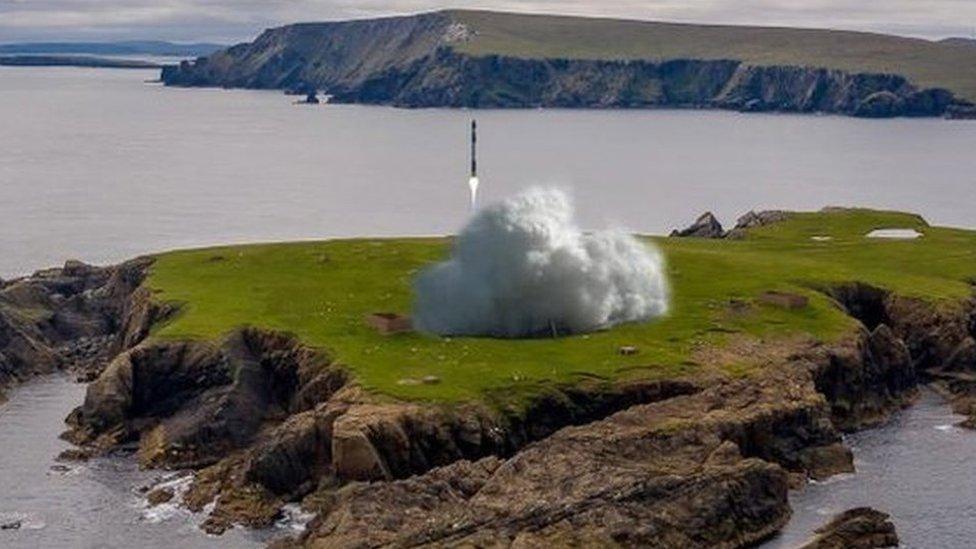
- Published5 May 2023
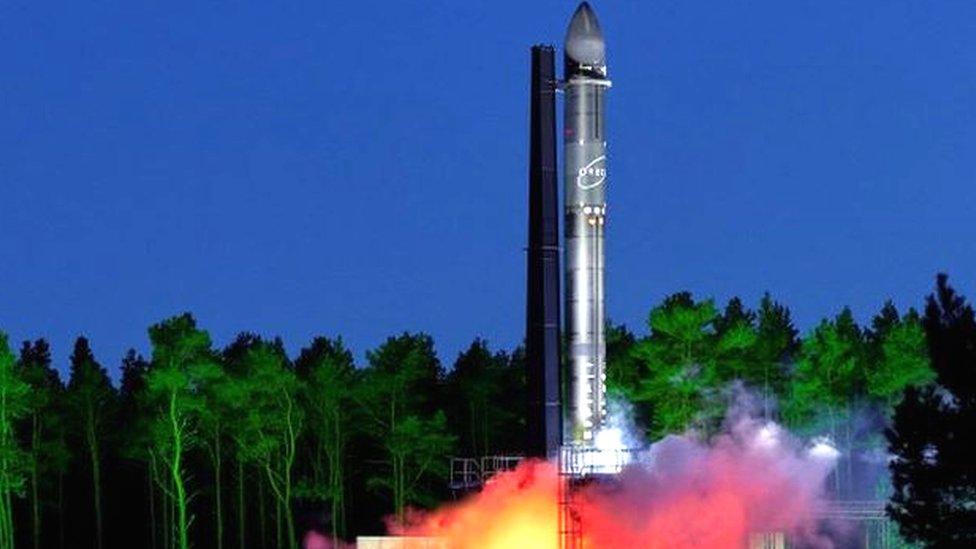
- Published12 May 2023

- Published11 May 2022
